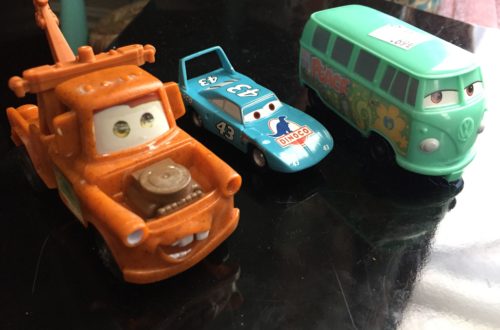
Sharing God Simply To Children
We have shared a bit here on our heart and conviction of why teaching God to children is so vitally important to both us and them.
We also understand that parents might be daunted by the task of teaching children about God, especially if they have not come from a faith background themselves, or are just not sure where to start. Parents might even be afraid that they won’t be “good enough” of a parent to prevent their kids from leaving behind the lessons taught to them. Parents might question, “Will my kids become like today’s unruly youth and the ‘modern teenager’?” It seems kids today are attracted to every trend and are susceptible to any temptation and suggestion. (Tide pods, anyone?) Also, kids are so interconnected to the world around them that they seem to have no filter for what they absorb, figuratively or literally. Yes, it can suddenly feel like a burden to think about instilling a sense of ethics, morals, and a love for God when the world (and the enemy who prowls about in it) uses every available tool, method, and person to do otherwise. Parents might be afraid that they might make mistakes or teach their kids wrongly. We may fear that we don’t know enough about God to try teaching the great theological truths and spiritual wisdom found in the Bible.
SO, how is it done?? How can one share about God to children?
Fear not!
It’s actually simpler than you may think.
I do remember having these fears myself before we had kids. I was afraid that I might screw it up. (Being a substitute teacher didn’t help. That can be a tough crowd to assume authority over.) But the answer started becoming clear to me when one of my cousins who has two kids simply said “Just be there.” That was the most reassuring piece of parenting advice I’ve ever received. It’s not that he said “it’s easy,” but he helped me realize that parenting in general is made of interacting with and participating in life with your children. (Not that you demote yourself to being their “friend,” however. You must remain as their authority.) You share life with them!
As we continue, bear in mind we are not book-writing, peer-reviewed experts. We are simply sharing with you what we do and what we have observed. We’re all in this together!
Generally speaking, The sooner you start, the easier. Infants are just absorbing things and trying to figure out their world – recognizing sounds, seeing shapes, feeling textures, etc. They listen to what you say, even if they can’t reciprocate yet. You know how we talk to infants? We identify things, we say peoples’ names, we talk to them, and we tell them what we’re doing? By talking and interacting with them, they learn and understand more quickly and fully. As they grow, they develop their personalities and they want to try their hand at things. You just keep talking with them, and explaining things to them. They remember! Talk with them about things that are relevant to them. You don’t have to be an expert in psychology or astrophysics, just share with them the world they see around them.
In general, two things to keep in mind:
- It is important to explain things plainly, but don’t be afraid to use appropriate terminology. By the time they are 2-3 years old, they are in their “word explosion” phase of developing their vocabulary. It is better to speak more intelligently than too simply, so don’t dumb it down too much. It’s so precious to hear them try to say their new words!
- Next, it’s important to reinforce what you say and repeat it. Kids crave repetition to learn and retain. So if you are saying something that’s a little more complicated, break it down and say it again simply. Talk about it again another time, too, not just once. Whenever it rained outside in the spring and summer, I would take our firstborn to the porch and tell them what was happening. We’ve done this many times. Eventually your children might say “What does that mean?” if you use a new word. There’s your cue to explain to them. Even if your kid is already 1 or 2 and a half or even older, it’s certainly not to late to start! Don’t despair, you haven’t missed out!
So, when we teach things, we just start at square one and go from there.
So…. what do you actually tell your young children about God?
 Think back to your Sunday School if you were blessed to be in it growing up. Your Sunday School teacher would share a story from the Bible, have a related activity like a craft or coloring, and even lead in Bible songs. What your teacher was doing was simply exposing you to God, and helping you to understand He exists. This is extremely important because the greatest way Satan, God’s adversary, leads people away from God is to simply proclaim He doesn’t matter, or even exist. So as you consider how to introduce kids to God, you can start the with way kids seem to start learning new things. Begin by exposing them to God. Infants look and see and try to understand, and since you are talking to them, tell them how God made the world.
Think back to your Sunday School if you were blessed to be in it growing up. Your Sunday School teacher would share a story from the Bible, have a related activity like a craft or coloring, and even lead in Bible songs. What your teacher was doing was simply exposing you to God, and helping you to understand He exists. This is extremely important because the greatest way Satan, God’s adversary, leads people away from God is to simply proclaim He doesn’t matter, or even exist. So as you consider how to introduce kids to God, you can start the with way kids seem to start learning new things. Begin by exposing them to God. Infants look and see and try to understand, and since you are talking to them, tell them how God made the world.
Our children, K.C. and R.A., at the time of this post are ages 3 & 1. Let us share with you some of the things we do or use to help expose them to God:
- “Mommy loves you; Daddy loves you; Jesus loves you more.” I would say this to KC most every night as I got him ready for bed, even as an infant. Kids need to know they are loved, but they should know that God’s love is greater than that of any human. I would follow it with:
- “Jesus is the most important Person in the world, and He wants to be your Friend.” Since we as Christians believe in the sovereignty of God, this means He comes first in everything, and we believe His Word is law to us. We want our kids to hold Him in the highest regard, like we would for the leader of any nation. Yet at the same time, one of the themes in the Bible is how God reveals Himself to us and comes down to our level. Jesus is the prime example of this. For all His splendor and grandeur, Jesus doesn’t hold His nose at us or cast us off as peasants; He wants us to be fully integrated together! By telling our kids that Jesus wants to be our Friend, it means that He is gracious to extend the riches of His love and majesty to us.
- Singing children’s Bible songs. The littlest ones love to hear music. Hearing Mommy or Daddy sing is a way of deepening kids’ intimacy with their parents. By singing songs like “Jesus loves me” or “Jesus wants me for a sunbeam,” we easily expose them to the concept of Jesus and His affection for us, especially children.
- Church attendance. (I know some have mixed feelings about church. We may explore that topic more in-depth another time.) We love our little country church, and our kids are regular church children. They sit with us (at least they are in our general area with us) during the main service. We insist on being there as an act of worship and devotion, because we want them to be reminded of God’s importance in our lives. We expose them to corporate worship, in prayer and in praise, and they are invited to participate in it. KC has a great memory! He learned the Lord’s Prayer some time within the last year, and prays with us as a church together. After the morning service, he goes down with the Sunday School teacher who volunteered to teach him earlier this year.
- AWANA Clubs. My old church growing up started this program when I was in school. It emphasizes Scripture memory, acts of service, and even some Boy Scout-type skills. KC is in the Cubbies group at another local church, and it operates much like a Sunday School class, with the weekly Bible story, recitation of Scripture, a snack, play time, etc. It is then up to the parents to reinforce the lessons and Scripture memory through the week to help retain what they learn. KC’s memory is very impressive! We believe in the importance of Bible memory because it helps us understand God, our need for Him, what Jesus has done for us, and how we are to act toward each other. It allows us to hold to some key truths in times of crisis or confusion, to either be counselled or to be a counsellor.
- Bible stories at bedtime. We have other books we read, too (mostly construction vehicle-based books!), but we begin with Bible stories. There are many children’s Bible storybooks. They all are good for teaching basic Bible knowledge, from famous stories like Moses telling Pharaoh to “let my people go,” David vs. Goliath, and Jesus’ miracles, to less touched upon stories like Naaman healed in the Jordan River or Elisha and the provision of oil for the widow and her son. Reading through more than one Bible storybook is good for reinforcement and for getting different flavors and emphases according to how the story is presented.
- Teaching Right and Wrong. Because we believe in the Bible as God’s Word, we believe in the concept of sin. We teach that sin is “anything we think, say, or do that displeases God.” Other Bible curriculums and programs, including AWANA or 5-Day clubs, teach this as well. We help KC understand that sometimes we do things that are not right, such as KC mistreating RA (KC has a tendency to push and pull him around, take from him — you know, big brother things.) or being disobedient to us. We also talk about how to do right for others, use manners, and be kind. Because we are the parents, we hold authority in our household, and what we say goes. Not that we try to give unreasonable orders, but when we tell KC to do something, we expect him to obey. If he doesn’t, there is a punishment or consequence. We teach that God wants us to obey. In John 14:15, Jesus tells His disciples: “If you love Me, then keep my commandments.” One of God’s commandments is “Honor your father and your mother” (Exodus 20:12), and another is “Children, obey your parents in the Lord, for this is right” (Ephesians 6:1, one of KC’s Bible memory verses). This is perhaps the single-most important thing to teach children: the ability to obey and respect authority.
Whew! I know that’s quite the long-winded list, and you certainly do not have to do all of these at once, but I hope these bullet points give you some insight into our method of teaching God to our little ones. It seems to us that these are mostly easy things to do, and they make a lasting impact. I hope some of these are easy to incorporate into your lives.





